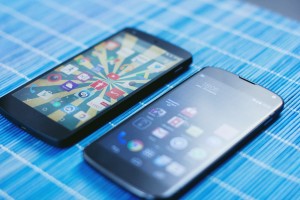
3 Opportunities for an “Uber-ized” Healthcare
by Marc Edwards, B.Sc., PMP, MBA
In my previous post, I talked about one author’s perspective on a future “Uber-ized” healthcare system, and after given it some thought, I have come up with some opportunities that we can expect in the future that will make all of this more feasible.
- We all have access to a lot of medical knowledge
Simply go to any web browser an you can have access to a vast medical knowledge base at your fingertips, greater than ever in human history. Think of all of the different websites where one could go to get medical information:
- Medicine/health oriented websites, like WebMD
- YouTube
- Wikipedia
In addition, more health apps and wearable devices allow the average person to track and record many aspects of their own personal health information. Some of these devices include:
- Activity trackers, like FitBit
- Smart watches
- Smart phones
- Singular home devices (e.g. blood pressure machines, diabetic devices)
The potential for this information ever increases as we not only have access to greater amounts of health knowledge, but we will also have greater access to our own personal health information.
- Increasing medical costs make alternatives more attractive
Healthcare costs are rising everywhere, especially in the Western world, where healthcare costs are increasingly becoming giant anchors to governmental budgets. The Uber-ization of healthcare could theoretically bring down costs as demand for beds decrease and home care becomes easier due to this “Uber-ization”. Mobile devices may allow users to video conference each other via apps like Facetime, so it’s not too difficult to envision a future where a health provider can use such tech to observe a patient taking his medicine as prescribed, or to diagnose a skin aliment that another patient is suffering from. There is obviously strong benefits to having this technology available, especially for patients with mobility issues, concerns about paying for transportation to hospitals or clinics, and just basically gives healthcare access to those of us who are generally prone to avoid a visit to the doctor’s office.
- Continual advancement of technology
One of the successes of Uber has been to narrow the knowledge gap between the taxi driver and rider so that intricate knowledge of the urban landscape is available to anyone with a computer connected to the Internet. GIS technology has obviously been an important player in this relationship. To this point, can an Uber-ization of healthcare bring about self-diagnosis? This is a very important question as it will directly impact the business model of what we are proposing here. Are we really talking about removing the healthcare provider from the circle of care? What’s missing is that “GIS-type” technology that narrows the knowledge gap between provider and patient. It’s obviously hard to predict the future but if I try, I would say that the equalizing tech could consist of two things:
- Tech (wearables?) that can easily measure blood tests/heart rate/blood pressure, maybe through either spit or sweat
- Artificial intelligence that aggregates the above data, crawls online medical content, and merges it with any patient photos taken, in order to make a diagnosis
In my previous post, I expressed some doubt about the feasibility of an Uber for healthcare because I was focused on humans continuing to provide healthcare. However, it is becoming apparent to me that technology, not us, may be the primary healthcare provider of the future. My next post will speak to the challenges of an Uber-ized healthcare but in the meanwhile, let me know what you think.



